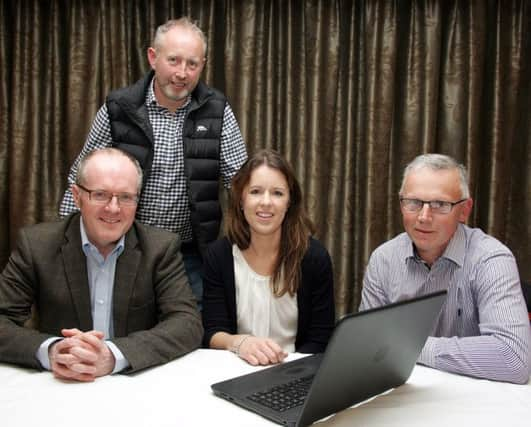Glimpse into the future of farming


Dr McConnell undertook a Nuffield Scholarship study tour in recent years looking at the role of new technology on dairy farms and her talk looked at precision technology in a changing world.
She reminded farmers that some farmers are already operating smart devices on dairy farms such as robotic milking.
Advertisement
Advertisement
Dr McConnell said advantages of technology could be found in landscapes, climate and animals and plants and technology is used to measure systems such as field to yield systems or nutrient management systems with a good example being GPS precision fertiliser spreading.
Technology is also used in grass measuring and trials are currently underway at AFBI with the use of drones.
Looking at new technology being developed for the future, Dr McConnell referred to drones which are already being used in some countries to measure grass quickly. However the disadvantage of drones is that payloads are limited, flight times are short because of battery power and there are likely to be more regulations governing their use in the future.
Dr McConnell looked at machines using the latest technology to control weeds in horticulture and she also showed photographs of the world’s first robotic rotary milking parlour in Tasmania where the farm’s 550 cows produce 8,300 litres.
Advertisement
Advertisement
In New Zealand, Dr McConnell discovered a robotic dairy farm with 480 cows but the owner managing the herd lived quite a distance away and managed the herd “virtually” through computers in his office.
Another new technology being developed is virtual fencing. Cows wear collars and an imaginary line runs through a field. When cows approach this, an alarm or light shock is given to the cows to keep them away from the virtual fence. In New Zealand there are developments of a robotic herder.
She told farmers that they must ask themselves what they were trying to improve, how they were going to measure it, if they had the right skills and if it would work with existing tech on the farm.
Summarising, Dr McConnell said precision technology would be a key driver for change in agriculture across the world and help play a key role in global food product challenges.